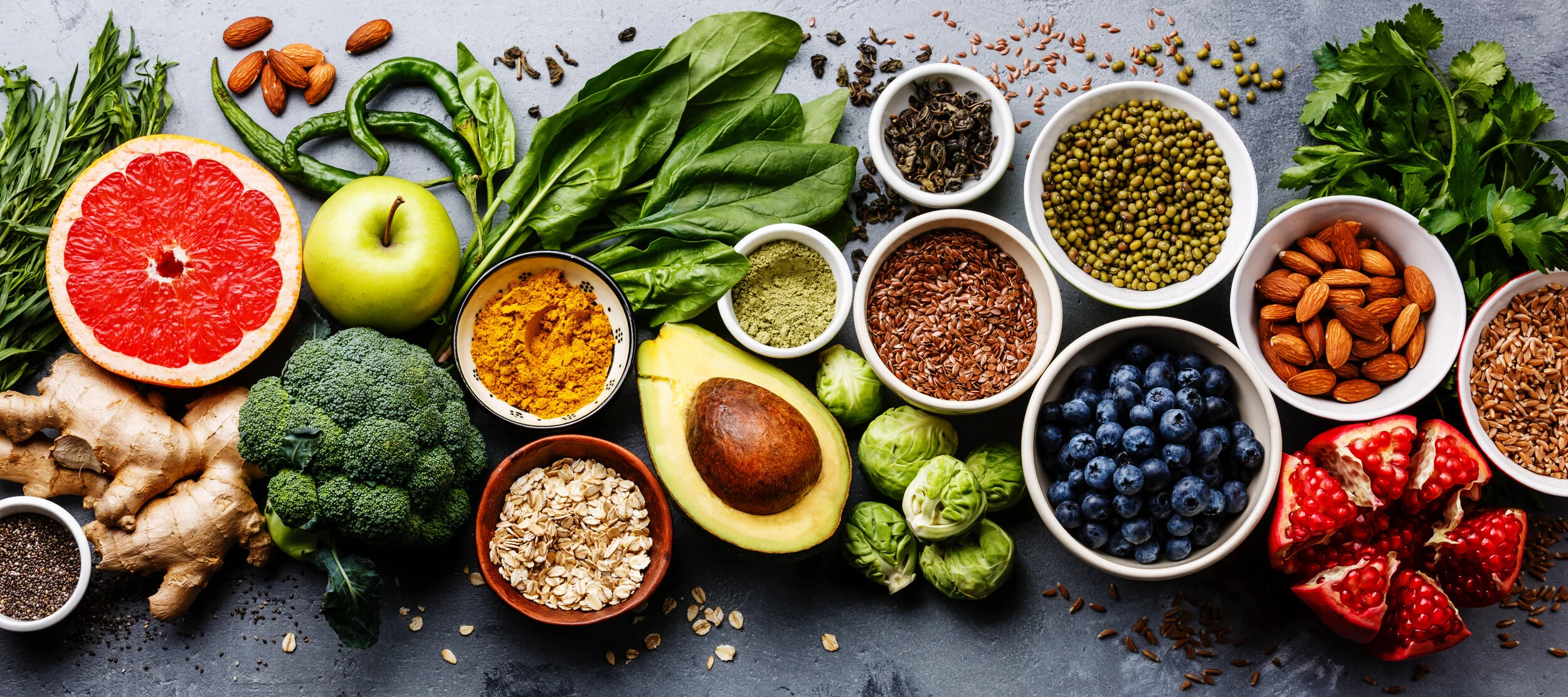
Codependency vs. Healthy Dependency: Understanding the Difference
In recent years, the term codependency has made its way into everyday language. It’s often used casually to describe “needy” behavior or intense attachment, but clinically, codependency is a complex relational pattern rooted in early experiences, trauma, and fears of abandonment. At the same time, humans are wired for healthy dependency — the mutual reliance that strengthens secure relationships.
In recent years, the term codependency has made its way into everyday language. It’s often used casually to describe “needy” behavior or intense attachment, but clinically, codependency is a complex relational pattern rooted in early experiences, trauma, and fears of abandonment. At the same time, humans are wired for healthy dependency — the mutual reliance that strengthens secure relationships.
One of the most important tasks in therapy is helping people distinguish between these two experiences. Understanding the difference is essential for building relationships that feel supportive, balanced, and emotionally safe.
What Is Codependency?
Codependency is commonly defined as a relational pattern in which one person becomes excessively emotionally or psychologically reliant on another—typically to the point of sacrificing their own needs, boundaries, or identity (Beattie, 1987; Cermak, 1986).
Key characteristics of codependency often include:
Difficulty saying no
Feeling responsible for others’ emotions or choices
Fear of abandonment or rejection
Self-worth tied to being needed
People‑pleasing to avoid conflict
Difficulty expressing personal needs
A pattern of choosing partners who are emotionally unavailable, unpredictable, or struggling with addiction
Cermak (1986) describes codependency as a “chronic pattern of dysfunctional caring,” where caretaking becomes compulsive and self-neglect becomes normalized.
In trauma‑informed terms:
Codependency often develops when early relationships required a child to be hyper-attuned to caregivers’ emotional states. In adulthood, this can transform into relationships driven by anxiety, over-functioning, or emotional enmeshment.
What Is Healthy Dependency?
Healthy dependency—also known as interdependence or secure dependence—is a natural, necessary part of human relationships.
Attachment science shows that humans are biologically wired for closeness, comfort, and co-regulation (Bowlby, 1988; Johnson, 2004). Healthy dependency is not weakness; it’s a sign of relational security.
Healthy dependency includes:
Mutual support and shared emotional labor
Freedom to express needs without fear
Balanced give-and-take
Maintaining individuality while staying connected
Respect for personal boundaries
Trust that the relationship can withstand honesty and conflict
Dr. Sue Johnson (2004), creator of Emotionally Focused Therapy, emphasizes that emotionally healthy adults “depend on each other without losing themselves.”
Codependency vs. Healthy Dependency: The Core Differences
1. Identity
Codependency: Sense of self becomes defined by caregiving, approval, or “being needed.”
Healthy Dependency: Both people maintain autonomy while staying emotionally connected.
2. Boundaries
Codependency: Blurred boundaries, difficulty saying no, fear that needs will push others away.
Healthy Dependency: Clear boundaries, comfort expressing limits and preferences.
3. Emotional Responsibility
Codependency: Feeling responsible for managing another person’s mood, choices, or reactions.
Healthy Dependency: Supportive but grounded—each person is responsible for their own emotional regulation.
4. Reciprocity
Codependency: One-sided giving, often driven by fear or obligation.
Healthy Dependency: Mutual responsiveness and shared emotional labor.
5. Motivation for Care
Codependency: Caregiving is tied to worthiness, fear of loss, or unresolved trauma patterns.
Healthy Dependency: Caregiving is grounded in love, respect, and authentic connection.
Why This Distinction Matters
When people confuse healthy dependency with codependency, they may:
Feel ashamed for having emotional needs
Avoid closeness to prevent “codependency”
Internalize the belief that needing others is a flaw
Over-correct by becoming hyper-independent
Hyper-independence can actually be a trauma response (Tummala‑Narra, 2007), not a sign of strength.
Recognizing the difference allows individuals to:
Build secure, emotionally safe relationships
Set healthier boundaries
Practice mutual vulnerability
Cultivate relational resilience
Moving Toward Healthy Dependency
Healing often involves shifting from fear-driven relating to connection grounded in security and self-worth. Some therapeutic steps include:
Identifying early attachment patterns
Practicing boundary-setting
Learning to tolerate uncomfortable emotions without over-functioning
Rebuilding self-worth separate from caretaking
Developing relationships with mutual emotional responsiveness
Therapy can be a powerful place to practice these skills and unlearn patterns that once felt necessary for survival.
Conclusion
Codependency is not simply “needing someone too much” — it is a pattern rooted in fear, trauma, and the belief that love is earned through self-sacrifice. Healthy dependency, on the other hand, is a sign of emotional maturity and secure attachment.
You are meant to lean on others. The goal is not to avoid dependency, but to practice it in ways that honor both your needs and your partner’s.
If you recognize codependent patterns in your own life, know this: healing is absolutely possible, and you are worthy of relationships built on safety, balance, and genuine connection.
References
Beattie, M. (1987). Codependent no more: How to stop controlling others and start caring for yourself. Hazelden.
Bowlby, J. (1988). A secure base: Parent-child attachment and healthy human development. Basic Books.
Cermak, T. L. (1986). Diagnosing and treating co-dependence. Alcoholism Treatment Quarterly, 4(1), 5–52.
Johnson, S. (2004). The practice of emotionally focused couple therapy: Creating connection. Brunner-Routledge.
Tummala‑Narra, P. (2007). Conceptualizing trauma and resilience across diverse contexts. Journal of Aggression, Maltreatment & Trauma, 14(1-2).
The Silent Weight Men Carry
“Suck it up, butter cup.”
“Rub some dirt in it.”
Most men have heard some version of these lines, little slogans wrapped in toughness and handed to boys long before they ever understand what they mean. Years ago, someone said I was “the least masculine employee.” To this day, I still don’t know what that’s supposed to mean.
“Suck it up, butter cup.”
“Rub some dirt in it.”
Most men have heard some version of these lines, little slogans wrapped in toughness and handed to boys long before they ever understand what they mean. Years ago, someone said I was “the least masculine employee.” To this day, I still don’t know what that’s supposed to mean.
Some men reading this may already be rolling their eyes or getting ready to accuse me of being woke. But stay with me, because what I’m talking about isn’t politics. It’s pain. It’s shame. It’s the quiet, suffocating struggle that too many men carry alone.
The Shame That Chokes
The shame men feel about seeking mental health support in our culture is palpable. In fact, it’s choking the life out of men who desperately need help but don’t feel allowed to ask for it. We’ve placed this bizarre expectation on men to “have it all together,” as if being male somehow comes with a manual for emotional invincibility.
Understanding the origins of these cultural expectations is important, but that’s a paper for another day. Today, I want to speak from the heart and from years of working with men from every walk of life.
The High Cost of Silence
I’ve worked with hundreds of men and boys, and nearly all of them have struggled under the same pressure:
Be strong.
Don’t cry.
Hold it together.
Don’t let them see you sweat.
I see this pressure at its most intense in first‑responder and military communities. These men are expected to have the answers, rise to the occasion, and if necessary, even meet violence with violence. But ask them how they’re feeling? Suggest that they practice self‑care or see a therapist? Some would rather walk it off even if they’re metaphorically (or literally) bleeding out.
Think Monty Python’s “It’s only a flesh wound” scene from the Holy Grail. That’s how a lot of men treat emotional injuries, as if admitting harm is worse than the harm itself.
Even in faith settings, men are expected to be unwavering pillars, protectors, providers, and leaders. But what happens when they fall short? When they doubt, struggle, or crumble under expectations?
Shame swoops in.
Shame tells them they’re less than other men.
Not good enough.
Not strong enough.
Not smart enough.
Not spiritual enough.
And men begin comparing themselves to other men, it’s what we do, usually while everyone is pretending they’re fine making small talk about the latest game or trend.
So, What Should Men Do?
If you’re a man reading this, here’s a hard but honest question:
Do you know how your behavior and your words impact the people around you?
Sometimes the expectations we cling to, the ones we think make us men, are the very things holding us back from real connection, growth, and emotional depth. It’s possible that what you were taught to value is actually harming your relationships and your own development.
So, here’s the real test of courage:
Can you admit you need help?
Can you take the first vulnerable step toward change?
Because being a man has nothing to do with being the strongest or the most dominant person in the room. It’s about how you show up.
Do people feel secure around you?
Do you act with integrity?
Do your values line up with your behavior?
These are the real markers of strength.
A New Kind of Masculinity
Men deserve deeper connections, richer relationships, and the freedom to be fully human, and not just stoic warriors marching silently toward burnout or breakdown.
If you’ve ever felt like you needed to “suck it up,” maybe today is the day you don’t.
Maybe today is the day you loosen your grip and admit:
“This is heavy, and I can’t carry it alone.”
Because asking for help doesn’t make you weak.
It makes you honest.
It makes you courageous.
And most importantly, it makes you whole.
The Quiet Power of Friendship: Why We Need Each Other More Than Ever
As a therapist, I’m often reminded that some of the most important healing doesn’t happen in my office. Healing happens over cups of coffee, in late-night phone calls, during shared laughter, or when someone says, “I’m here. Tell me what’s going on” or “I support you.”
As a therapist, I’m often reminded that some of the most important healing doesn’t happen in my office. Healing happens over cups of coffee, in late-night phone calls, during shared laughter, or when someone says, “I’m here. Tell me what’s going on” or “I support you.”
Friendship is not just a social luxury. It's an essential component of mental and emotional well-being. Research consistently shows that meaningful social connection is one of the strongest predictors of life satisfaction, resilience, and even physical health. And yet, in a world that prizes independence and busyness, many of us underestimate the quiet power of friendship.
This season I want to explore why investing in healthy friendship matters, and why nurturing these bonds is one of the healthiest choices you can make.
Friendship Supports Emotional Well-Being
Humans are wired for connection. Supportive friendships create a sense of belonging, which reduces feelings of loneliness and isolation. Even a single close relationship can significantly lower stress levels and improve our sense of stability.
Studies show that people with strong social ties have:
Better self-esteem
A stronger sense of purpose
Higher levels of happiness
Greater life satisfaction
Friends remind us that we don’t have to carry life alone.
Friendship Protects Mental Health
The benefits aren’t just emotional, they’re biological. Supportive relationships have been linked to lower cortisol (the stress hormone), better emotional regulation, and reduced symptoms of anxiety and depression.
Friendship acts like a buffer between us and the stressful events of life. When we know we have someone to lean on, challenges feel more manageable.
And importantly: the quality of friendships matters more than the quantity.
A few deep, trusted relationships often offer more support than dozens of casual acquaintances.
Friendship Strengthens Physical Health, Too
Decades of research show consistent patterns: socially connected people tend to live longer, recover more quickly from illness, and have lower rates of chronic health conditions such as high blood pressure.
Why?
Because feeling supported lowers stress, encourages healthy habits, and strengthens the immune system. Friendship, in many ways, is preventative medicine.
Why Friendship Is Especially Important During Transitions
Life transitions often shake our sense of identity. New jobs, moves, parenthood, relationship changes, grief can leave us feeling untethered.
In these moments, healthy friendships provide continuity. They remind us of who we are, what we value, and how much we matter.
If you’re going through a challenging season, consider asking yourself: Who in my life offers comfort, grounding, and perspective? And have I reached out lately?
An Invitation
If friendship has slipped to the bottom of your priority list, as it often does for busy adults, it’s worth revisiting. Even small steps matter: a text message, a short check-in call, or setting a date to reconnect.
Your mental health will thank you.
Want to Learn More About Friendship & Mental Health?
If you’re curious about how friendships support emotional well-being, these resources are a great place to start:
Platonic by Dr. Marisa G. Franco
A compassionate, research-based book about building and maintaining meaningful friendships as an adult.
Friendship by Lydia Denworth
Explores the science behind why connection matters for our mental and physical health.
Mayo Clinic: “Friendships: Enrich Your Life and Improve Your Health”
A clear, easy-to-read overview of how friendships reduce stress, improve mood, and support overall well-being.
A short, engaging video about what helps friendships thrive over time.
Looks at the link between social connection, health, and longevity.
Wicked: For Good & The Transformative Power of Relationships
I’ve now seen Wicked: For Good twice—and cried both times during the iconic “For Good” scene. That song is a masterclass in emotional depth, capturing the bittersweet reality of friendships that transform us, even when circumstances pull us apart. From a mental health standpoint, this moment resonates deeply: it reminds us that relationships can be both impermanent and profoundly impactful.
Spoiler Alert: This review contains key plot details from Wicked: For Good.
I’ve now seen Wicked: For Good twice—and cried both times during the iconic “For Good” scene. That song is a masterclass in emotional depth, capturing the bittersweet reality of friendships that transform us, even when circumstances pull us apart. From a mental health standpoint, this moment resonates deeply: it reminds us that relationships can be both impermanent and profoundly impactful.
Themes That Matter
1) Friendship Under Pressure
Elphaba and Glinda’s bond is tested by political turmoil, moral dilemmas, and personal insecurities. Their journey illustrates how friendships can thrive—even in crisis—when honesty and empathy are present. This mirrors what we often discuss in therapy: navigating conflict without losing connection.
2) The Importance of Community
The film underscores how isolation amplifies distress. Elphaba’s experience as an outsider highlights the mental health risks of stigma and exclusion. Conversely, moments of solidarity—whether through shared laughter or acts of courage—show how community fosters resilience and hope.
3) Identity and Self‑Acceptance
Elphaba’s struggle to embrace her uniqueness speaks to anyone who has felt “othered.” Her arc reminds us that authenticity often comes at a cost, but it’s essential for psychological well‑being.
4) Ambiguous Loss and Grief
The ending carries a quiet grief—not just for what’s lost, but for what could have been. This is where “For Good” hits hardest: it validates that even relationships that end can leave us stronger, wiser, and more compassionate.
Personal Reflection: Friendship, Loss, and Choosing Community
Watching Wicked: For Good reopened a tender chapter for me. My best friend from high school died suddenly at the young age of 26. The shock of losing someone who helped shape my early life left a fault line in my heart that I still feel when “For Good” swells. The lyrics—“Because I knew you, I have been changed for good”—capture the way our friends become anchors, mirrors, and catalysts. Grief doesn’t erase that imprint; it clarifies it.
That loss also changed how I show up for friendship as an adult. I value my friend circle now more than ever—not as a casual social accessory, but as a vital, life‑giving safety net. I invest more intentionally: answering the phone, scheduling the visit, saying “I love you,” apologizing promptly, and celebrating small wins. I’ve learned that community isn’t accidental; it’s built through consistent, vulnerable presence. In clinical terms, these practices strengthen attachment bonds and expand our window of tolerance—making it easier to weather stress, disagreement, and uncertainty together.
I also find solace in honoring her memory by living the best life. She was not given the same chance, and I value every moment now in a different way.
Why It Matters for Mental Health
Friendship as a Protective Factor: Strong social bonds buffer against stress and trauma; they reduce loneliness and improve emotion regulation.
Community as Healing: Belonging counters shame and stigma, and offers shared meaning in the face of loss.
Permission to Feel: The story normalizes complex emotions—love, anger, guilt, and grief—without judgment and shows that courage and compassion can coexist.
Gentle Takeaways
If a friendship is in crisis, name the strain and seek repair: truth plus tenderness.
Choose community on purpose: make plans, ritualize connection, and practice gratitude.
Let “For Good” be more than a song—make it a practice: tell your people how they’ve changed you, and how you intend to keep showing up.
Final Thoughts
Wicked: For Good isn’t just a musical—it’s a mirror reflecting our need for connection, meaning, and forgiveness. If you’ve ever navigated a friendship through crisis or wrestled with identity and belonging, this story will speak to you. And yes, if you’re like me, you might cry during “For Good”—because it’s not just a song; it’s a reminder that relationships, even imperfect ones, shape who we become and help carry us through the hardest seasons.
Life Transitions: 8 Tips for Navigating Change with Grace and Resilience
Ambiguous loss is a profound form of grief that occurs without clear closure or resolution. Coined by Dr. Pauline Boss in the 1970s, this concept describes situations where a person experiences loss without the traditional markers of death or finality. Such losses can be particularly challenging because they often go unrecognized by others, leading to feelings of isolation and confusion.
What Is a Life Transition?
Life transitions are moments of change that invite us to pause and reflect on who we are and who we want to become. While transitions can happen at any stage of life, they often feel particularly intense during midlife, retirement, or other pivotal periods. It’s normal to feel uncertain, anxious, or even sad during these times—these emotions are part of what it means to be human.
Examples of Life Transitions:
Getting married
Pregnancy or becoming a parent
Divorce or separation
Leaving home or moving to a new place
Empty nest syndrome
Career change or job loss
Health challenges or serious illness
Significant loss (person, pet, or anything important)
Retirement
Why Do Transitions Feel Overwhelming?
Change can feel like stepping into the unknown. Our minds naturally crave predictability, so when the familiar shifts, we may feel anxious, vulnerable, or even mourn the life we once had. Sometimes this stress can show up as trouble sleeping, changes in appetite, or even feelings of depression or anxiety. When it becomes too much to handle on your own, it may even meet the criteria for an adjustment disorder, which is a normal response to major life changes (O'Donnell et al., 2019).
Finding the Silver Lining
Though change can be challenging, it also carries opportunities for growth. Research shows that successfully navigating transitions can strengthen resilience, boost confidence, and increase emotional awareness (Peng et al., 2025). You may discover new skills, uncover what truly matters to you, or develop a deeper sense of self. Even transitions we didn’t choose can bring unexpected benefits.
Coping with Change: Evidence-Based Strategies
Here are ways to care for yourself and navigate life’s transitions with compassion and clarity:
Acknowledge Your Emotions: Allow yourself to feel whatever arises—fear, sadness, excitement, or relief. Naming your emotions validates them and begins the healing process.
Reach Out for Support: Lean on friends, family, or support groups. Sharing your experience reminds you that you are not alone.
Practice Self-Compassion: Be gentle with yourself. Adjusting to change takes time, and it’s okay to stumble along the way.
Take Care of Your Body: Sleep, nutrition, and movement all influence your emotional well-being. A healthy body supports a resilient mind.
Use Active Coping Strategies: Problem-solving, goal-setting, or positive reframing can help you feel more in control of your new circumstances (Sundqvist et al., 2024).
Reflect on Your Values: Clarifying what matters most to you can guide your decisions and help you move forward with intention.
Build New Routines: Small, consistent habits create stability amidst uncertainty.
Allow Yourself Time: Life transitions are a journey. Celebrate small wins and notice how you grow along the way.
When to Seek Professional Help
If the stress of change feels unmanageable, or if you notice persistent sadness, anxiety, or thoughts of self-harm, reach out for professional support immediately. Therapists can provide a safe space to explore your emotions, develop coping strategies, and navigate life’s transitions with guidance and care (Novaković et al., 2025).
At Summit Family Therapy, we honor the courage it takes to face life’s transitions. You do not have to navigate these changes alone. Together, we can explore your feelings, clarify your goals, and help you move forward with hope and confidence.
Sources
O'Donnell, M. L., et al. (2019). Adjustment Disorder: Current Developments and Future Directions. International Review of Psychiatry.
Novaković, I. Z., et al. (2025). Mental health during and after the COVID-19 pandemic. Psychiatry and Clinical Neurosciences.
Peng, M., et al. (2025). Relationships between emotional intelligence, mental resilience, and adjustment disorder in newly licensed registered nurses. Journal of Advanced Nursing.
Sundqvist, A. J. E., et al. (2024). The influence of educational transitions on loneliness and mental health among emerging adults. Journal of Youth and Adolescence.
Parola, A., et al. (2025). Resources and personal adjustment for career transitions in adolescents. Journal of Vocational Behavior.
Integrating Nutrition and Lifestyle for Mental Health: A 2025 Update
Mental health disorders such as depression, anxiety, bipolar disorder, and ADHD are prevalent, affecting millions globally. Recent research underscores the significant role of nutrition and lifestyle interventions in managing these conditions, offering complementary approaches to traditional pharmaceutical treatments.
Mental health disorders such as depression, anxiety, bipolar disorder, and ADHD are prevalent, affecting millions globally. Recent research underscores the significant role of nutrition and lifestyle interventions in managing these conditions, offering complementary approaches to traditional pharmaceutical treatments.
🌱 Nutritional Psychiatry: A Growing Field
Nutritional psychiatry examines how dietary patterns and nutrients influence mental health. Studies indicate that dietary interventions can alleviate symptoms of depression and anxiety. For instance, a meta-analysis revealed that dietary interventions significantly reduced depressive symptoms compared to control conditions.
Furthermore, a comprehensive review highlighted the potential of specific nutrients, such as omega-3 fatty acids and B vitamins, in managing mood disorders.
🥗 The Mediterranean Diet: A Protective Pattern
The Mediterranean diet, rich in fruits, vegetables, whole grains, healthy fats, and lean proteins, has been associated with improved mental health outcomes. Adherence to this diet correlates with lower levels of depression and anxiety.
Conversely, high consumption of ultra-processed foods has been linked to increased risk of mental health issues, emphasizing the importance of dietary choices in mental well-being.
🍬 Sugar and Addiction: Implications for Mental Health
Excessive sugar intake can impact brain chemistry, potentially leading to addictive behaviors. Research suggests that sugar consumption activates dopamine and opioid pathways in the brain, similar to addictive substances.
Additionally, low dopamine levels associated with sugar withdrawal may contribute to cravings and continued consumption, highlighting the need for mindful dietary habits.
💤 Sleep: A Cornerstone of Mental Health
Quality sleep is crucial for mental health. Studies indicate that sleep disturbances are bidirectionally related to mood disorders, with poor sleep contributing to and resulting from conditions like depression and anxiety.
Implementing good sleep hygiene practices—such as maintaining a consistent sleep schedule, creating a restful environment, and limiting screen time before bed—can improve sleep quality and, by extension, mental health.
🏃♀️ Exercise: Enhancing Mood and Cognitive Function
Regular physical activity has been shown to elevate serotonin levels and regulate stress hormones, contributing to improved mood and cognitive function. Engaging in enjoyable activities, setting achievable goals, and exercising with a partner can enhance adherence and overall mental health benefits.
🧠 Integrating Approaches for Optimal Mental Health
Combining nutritional interventions with lifestyle modifications can accelerate therapeutic outcomes. For example, a ketogenic diet has shown promise in helping stabilizing mood and cognitive function in individuals with bipolar disorder.
Collaborating with healthcare providers trained in nutritional and integrative interventions can help individuals identify essential nutrients, develop personalized dietary strategies, and incorporate lifestyle changes to support mental health.
If you are interested in taking the next step in your mental and physical health, I have training in nutritional and integrative interventions. Give our office a call at 309-713-1485 or email info@summitfamily.net. I look forward to finding solution together!
Sources:
Opie RS, O’Neil A, Itsiopoulos C, et al. The impact of whole-of-diet interventions on depression and anxiety: a systematic review of randomised controlled trials. Public Health Nutr. 2015;18(11):2074-2093. PMC6455094
Jacka FN, O’Neil A, Opie R, et al. A randomised controlled trial of dietary improvement for adults with major depression (the “SMILES” trial). BMC Med. 2017;15:23.
Harvard Health Publishing. Mediterranean diet may help ease depression. 2023.
Hall KD, et al. Ultra-processed diets cause excess calorie intake and weight gain: an inpatient randomized controlled trial of ad libitum food intake. Cell Metab. 2019;30(1):67-77.
Lenoir M, et al. Intense sweetness surpasses cocaine reward. PLoS One. 2007;2(7):e698.
Kessler RC, Bromet EJ. The epidemiology of depression across cultures. Annu Rev Public Health. 2013;34:119-138.
Stanford Medicine. Sleep and mental health: What the science says. 2025.
Verywell Mind. What is sleep hygiene? 2024.
News-Medical.net. UCLA Health launches study on ketogenic diet for bipolar disorder in youth. 2025.
The Guardian. Metabolism and diet linked to bipolar depression, scientists say. 2024.
Nutritional and Integrative Interventions
How often do we read these mental health statistics and think that the only “cures” are pharmaceutical interventions?
Anxiety disorders are most common mental illness in US affecting 40 million adults (ADAA)
Depression affects 322 million adults worldwide
1 of every 6 adults will suffer depression in their lifetime
Nutritional and Integrative Interventions
(Depression, Anxiety, Bipolar and ADHD)
How often do we read these mental health statistics and think that the only “cures” are pharmaceutical interventions?
Anxiety disorders are most common mental illness in US affecting 40 million adults (ADAA)
Depression affects 322 million adults worldwide
1 of every 6 adults will suffer depression in their lifetime
Nutritional psychology is an emerging field that outlines how nutrients can affect mood and behavior. Many clients will see a reduction in symptoms when integrating non-pharmaceutical interventions to treat depression, anxiety, bipolar disorder and even ADHD.
It is possible to accelerate your therapeutic results by viewing the whole person:
Food: the good, the bad and the fake
Stress: A holistic approach
Exercise: Elevate serotonin and regulate stress hormones
Sleep: The 4 habits critical to sleep
Research shows that Mediterranean lifestyle--diet, physical activity, and socializing helps improve mental health/depression.
Sugar addiction--sugar as a substance releases opioids and dopamine which suggest an addictive potential
Fake nutrition--alcohol, junk food, snacks, sugar, soft drinks, white foods
Stress management--meditation, exercise, deep breathing, mindfulness, music, “ditch the screens”
Exercise--pick activity you enjoy, find a buddy, set a goal, start out slow
4 Sleep habits--adults need 7-9 hours of sleep in a dark, cool room. No caffeine after noon. Avoid electronic devices one hour before bedtime. Create a bedtime ritual.
“Let food be your medicine and medicine be your food.”---Hippocrates
S.A.D.--Standard American Diet is not recommended
High--Meat at center of plate, processed foods and simple carbohydrates
Low--healthy fats, fruits and vegetables
Healthy fats are important for brain health--avocado, coconut oil, EVOO, ghee
Proteins are important for brain health--fish, grass fed beef, eggs, nuts, seeds legumes
You can greatly increase your therapeutic results by addressing core physical and nutritional needs with a qualified counselor. You will discover the nutrients most essential to healthy brain function, treating depression and anxiety, and learn simple strategies that can be integrated with pharmaceutical interventions.
We have just scratched the surface here. There is so much more research and information about nutrition and mental health available. Professional counselors want to help you decipher and incorporate these practices into your life.
If you are interested in taking the next step in your mental and physical health, I have training in nutritional and integrative interventions. Give our office a call at 309-713-1485 or email info@summitfamily.net. I look forward to finding solution together!
We Are Growing! Meet Our New Counselors
2020 has been a very challenging year for the mental health of our community. Mental Health America reports that anxiety and depression rates have increased at an alarming pace, self harm and suicide are on the rise, people are struggling more with isolation and loneliness, and rates of anxiety, depression, and suicidal ideation are increasing for people of all races and ethnicities.
We Are Growing! Meet Our New Counselors
2020 has been a very challenging year for the mental health of our community. Mental Health America reports that anxiety and depression rates have increased at an alarming pace, self harm and suicide are on the rise, people are struggling more with isolation and loneliness, and rates of anxiety, depression, and suicidal ideation are increasing for people of all races and ethnicities. Numbers demonstrate that from January through September, pandemic enduring youth ages 11-17 have been more likely than any other age group to report moderate to severe symptoms of anxiety and depression and have the highest rates of suicidal ideation, especially LGBTQ+ youth. The number of youth reaching out for help is also increasing. Black or African Americans report the highest average percent change over time for anxiety and depression, while Indigenous Americans have had the highest average percent change over time for suicidal ideation.
We are very excited to announce that two seasoned counselors have joined our practice! Our hope is that we are able to support even more people who are struggling during the pandemic through this expansion, especially youth, families, and adults.
Erica Ray, M.Ed., LCPC, earned her Master of Arts in Education, School Counseling, from The University of Akron. She brings to our practice her experience with counseling in a school setting, developing wilderness experiences for at risk youth, therapeutic boarding school programming, collaborating with the Department of Child and Family Services, and has training in Trauma Focused CBT. Her client areas of focus are school aged children, teens, and adults. She has full time hours available to see clients.
Jayshree Panchal, MA, LCPC, graduated from Bradley University with a Master of Arts in Human Development Counseling. She brings many years of experience counseling adolescents, college students, and adults. She uses trauma informed approaches to treat grief and loss, improve relationships, assist with college preparation, and enhance career development. She has practiced in many settings, including schools, career centers, hospital units, and community mental health. She is practicing with us part time on evenings and weekends.
Please join us in celebrating this milestone for our practice. We know it is harder right now to find a counselor who is taking new clients because of the pandemic increasing the demand for services. If you are interested in scheduling a counseling session for yourself or your child, give us a call today at 309-713-1485 or email info@summitfamily.net.
Coping with COVID 19: Is My Current Sadness Really Grief?
Are you having trouble identifying your feelings during the COVID 19 pandemic? You might be experiencing grief. In a recent Harvard Business Review, foremost expert on grief and author David Kessler, states there is a 6th stage of grief. Kessler co-wrote with Elisabeth Kubler-Ross about the 5 stages of grief—denial, anger, bargaining, depression and acceptance. In Kessler’s new book, Finding Meaning: The Sixth Stage of Grief, he says that after acceptance stage there can be meaning. He is also the founder of www.grief.com.
Are you having trouble identifying your feelings during the COVID 19 pandemic? You might be experiencing grief. In a recent Harvard Business Review, foremost expert on grief and author David Kessler, states there is a 6th stage of grief. Kessler co-wrote with Elisabeth Kubler-Ross about the 5 stages of grief—denial, anger, bargaining, depression and acceptance. In Kessler’s new book, Finding Meaning: The Sixth Stage of Grief, he says that after acceptance stage there can be meaning. He is also the founder of www.grief.com.
Kessler states that:
We are feeling a number of different griefs, it feels like the world has changed and it has. We are hoping it’s only temporary but it doesn’t feel that way. There’s a loss of normalcy; fear of economic toll; and the loss of connection. We are not used to this kind of collective grief in the air.
We may also be feeling anticipatory grief because the future is uncertain. Typically, this happens with an impending death or receiving a dire diagnosis. Anticipatory grief is confusing. We know there’s potential for bad things to happen. We sense a loss of safety, but we can’t see it. We no longer feel safe.
It’s important to understand that there isn’t a map for grief or for the grieving. People manage their grief in different ways and in unpredictable timelines. I won’t get the virus—denial. I have to miss my activities and stay home—anger. If I social distance for two weeks, I’ll be fine—bargaining. Will this ever end? —sadness. Ok, I have to figure this out—acceptance. We find power in acceptance.
Unhealthy anticipatory grief is really anxiety about the unknown. We imagine future worst-case scenarios. We don’t want to dismiss this anxiety. The goal needs to be finding balance in the things you are thinking. Not everyone who gets sick, will die. By staying in the moment, being mindful, you can calm yourself. Name five objects in the room. Breathe. I’m okay.
Let go of what you can’t control. Be compassionate. Be patient. People aren’t their “normal selves right now.” The most troubling part of this pandemic is the open-endedness of the situation. This is temporary even though it feels like forever.
Kessler identifies the sixth stage as finding meaning after acceptance. We want/need to find meaning in suffering. This might look different to different individuals, groups, and societies depending on their circumstances and experiences.
Take time to feel your emotions, name them and allow them to move through you. Leave the “would of, could of, should of” out of your feelings.
Most of us tend to identify grief in relation to a death. Grief can also be experienced from any loss —loss of relationship, loss of job/career, loss of home, loss of financial security, loss of a pet, and loss of a dream.
If you or someone you know is struggling with grief, it’s important to seek out professional help with a qualified therapist. What has been your hardest loss to cope with?
Resources
Berinato, S. (2020, March 23). That discomfort you’re feeling is grief. Harvard Business Review. https://hbr.org/2020/03/that-discomfort-youre-feeling-is-grief
Tele-what? Taking the Mystery Out of Telehealth Counseling
Life in the time of COVID. There are a multitude of extra stressors that are occurring right now. People are being stretched in ways that they didn’t know existed. You might be feeling totally exhausted, stressed to the brim, anxious about what is to come, having issues with everyone in your family being stuck in the house, or feeling like things are out of control. On top of this — the typical things in your life are still going on.
Now, more than ever, people need to be aware of their mental health, how it has been affected, and what resources are available to help combat this.
Life in the time of COVID. There are a multitude of extra stressors that are occurring right now. People are being stretched in ways that they didn’t know existed. You might be feeling totally exhausted, stressed to the brim, anxious about what is to come, having issues with everyone in your family being stuck in the house, or feeling like things are out of control. On top of this — the typical things in your life are still going on.
Now, more than ever, people need to be aware of their mental health, how it has been affected, and what resources are available to help combat this.
Tele-counseling is one option for working through your struggles, emotions, frustrations, or just processing through this difficult time. Like traditional counseling, telehealth provides the same support and encouragement that you would receive in an in-person session and allows you to maintain physical safety, follow the social distancing guidelines, and still receive the help you need.
Tele-counseling is different, there’s no denying that. However, current research suggests that tele-counseling is just as effective as traditional counseling. A study completed by Andrews, Basu, Cuijpers, Craske, McEvoy, English, and Newby in 2018 compared traditional Cognitive Behavior Therapy to internet-based Cognitive Behavior Therapy and found that both were equally effective for treating anxiety and depression.
Let’s answer some questions about tele-counseling!
Tele-counseling won’t be as personal as in-person.
Your therapist will work to ensure that the same therapeutic relationship is provided though the tele-counseling session. Your therapist will use the same skills and training that are used in a typical session to understand you and your goals, provide the therapeutic relationship, and help you to feel supported.
How do I know that this is private?
Summit Family Therapy uses a secure, HIPAA-compliant service to provide the video connection for therapy. The therapist will be in an office, the same as if you were in the office.
There are some tips to provide privacy on your end. Some people have private space in their home. You can use headphones to ensure that others are not able to hear the therapist’s responses. You might consider leaving your home and finding a different quite space. Use this as an opportunity to get out of the house while respecting social distancing. Maybe take a drive and stop somewhere with a nice view, a park, or your favorite spot. The beauty of tele-counseling is that you can be anywhere, as long as you have internet and privacy.
I don’t have a computer with a camera.
Great news! You don’t need to have a computer. You are able to use your phone, tablet, or other device to participate in your tele-counseling session. There is an easy to download app for both IOS and Android that can be downloaded to any device with a working camera. If you have trouble with this, we can support you through getting this downloaded and coaching you over the phone.
I am not tech-savvy, this will be too difficult.
The program we use is simple and easy to use. You will get a link to your email to go to your private, virtual waiting room. When it is time for your session, the therapist will join you there — just like when they would find you in the office waiting room. Once you are in the session, there is nothing more you need to do.
What if I don’t like it?
Just like any therapy, if you aren’t happy, you don’t need to continue. If you find that you are feeling uncomfortable during the session, bring this up! Your therapist can help to process this and help you to make the best decision, for you, to move forward.
What are the benefits of tele-counseling?
Just like any therapy, this is a relationship and the same benefits exist; however, there are added benefits of using tele-counseling:
• You can attend sessions from anywhere • There is no drive time to the office •
• More flexibility in scheduling • Less risk of exposure to illness •
• Easy to access • Limited wait time •
• No need to change out of your pjs • Be in the comfort of your own space •
More questions?
Do you have more questions? Would you like to talk to a professional about what tele-counseling would be like for you? Give us a call and we would happy to talk more about how tele-counseling can change your life!
Resources
Andrews, G., Basu, A., Cuijpers, P., Craske, M., McEvoy, P., English, C., & Newby, J. (2018). Computer therapy for the anxiety and depression disorders is effective, acceptable and practical health care: An updated meta-analysis. Journal of Anxiety Disorders, 55, 70-78. https://doi.org/10.1016/j.janxdis.2018.01.001be

















